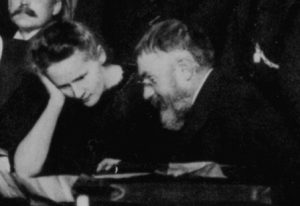
There can be little doubt that Henri Poincaré was one of the great mathematicians of the second part of the 19th century, with important contributions in almost all areas. He was also a physicist (and almost formulated something like special relativity at the same time as Einstein), and also a philosopher of science and, as we like to say today, an excellent populariser.
In Mathematical Invention (chapter 3 of the first book of his Science and Method (1908)), he includes a clear-sighted analysis of how a discovery is made in mathematics, and to illustrate it he tells us the delightful story of how he came upon one of his discoveries about Fuchsian functions during a geological excursion (in his own words, exactly at the moment when he put his foot on the running board of a bus used for the excursion). Poincaré begins Mathematical Invention by pondering some very interesting questions: “How is it that there are people who do not understand mathematics?”, he asks, and also, “How is error possible in mathematics?” (a question he discusses at greater length in book two in relation to logic). The pill I wanted to leave here today has to do with this possibility of error in mathematics, and is especially indicated to counteract the fits of arrogance that sometimes afflict us people, scientists and mathematicians included; in this sense, Poincaré reminds us:
Do I need to add that even good mathematicians are not infallible?

Leave a Reply